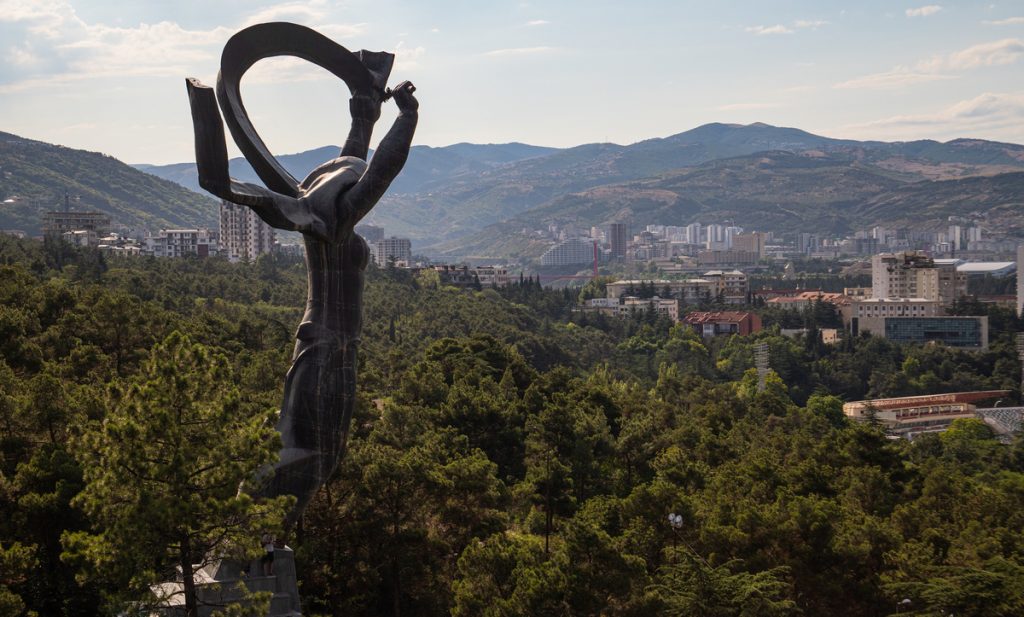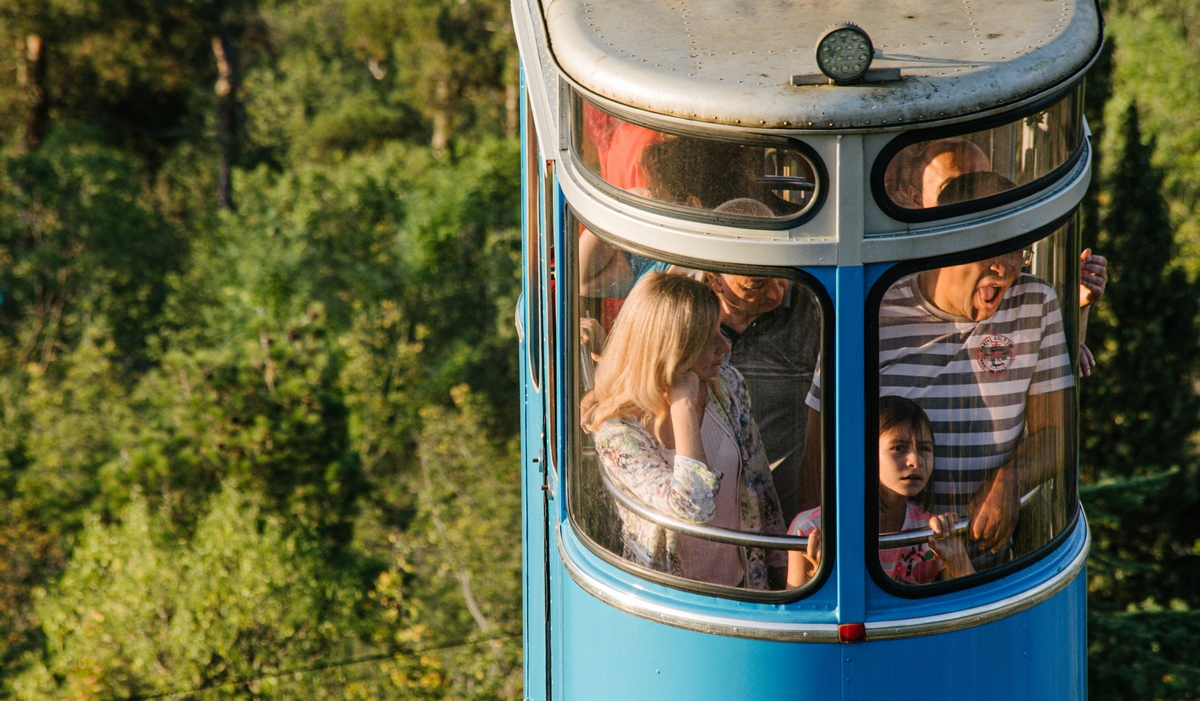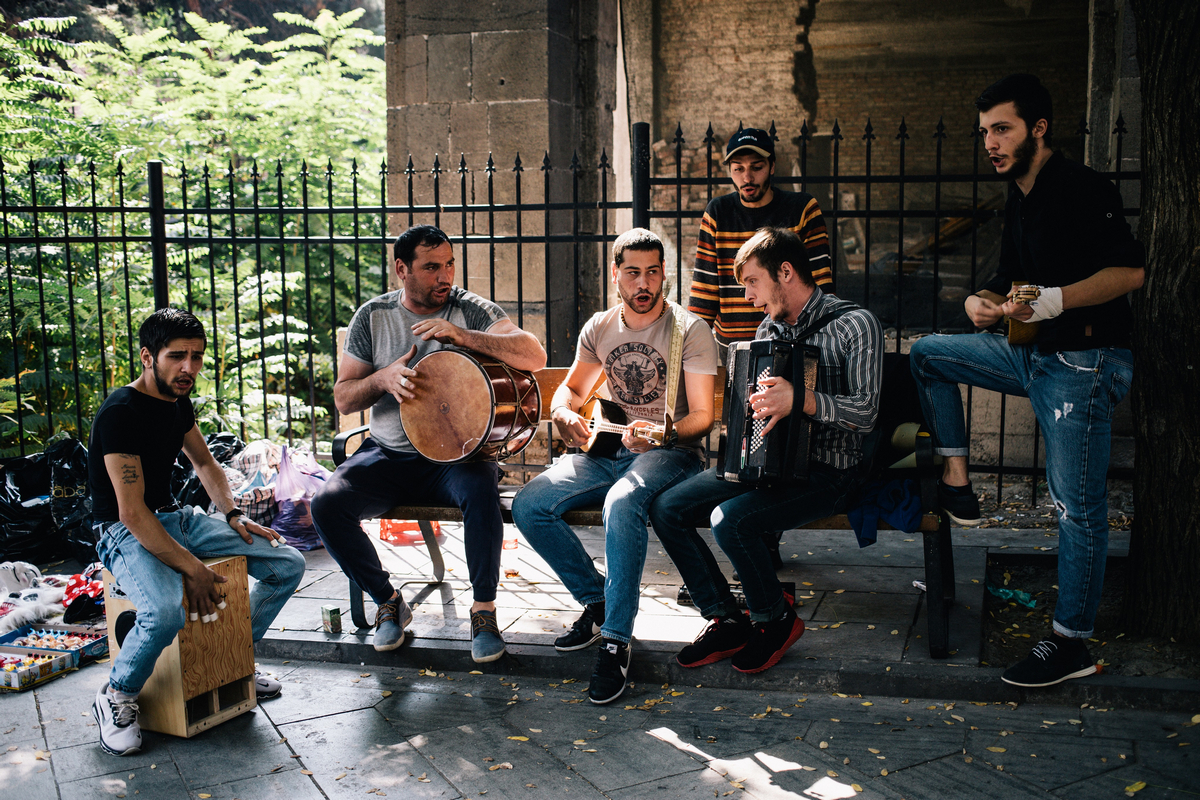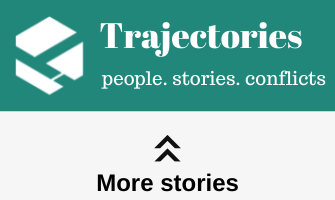Tbilisi: A city where Armenians and Azerbaijanis can be friends despite the war
The nearest place to Baku and Yerevan where Armenians and Azerbaijanis can be friends is Tbilisi. Bakuvian Rakhila has been living here for 8 years, and her circle of contacts consists mostly of Armenians. But how to make friends with those whom you were taught, as a child, to see as enemies, and how to preserve this friendship amid another war?

Rachel’s daughter’s name is Lala, but on the playground they call her in the Georgian manner – Lali. She was born here, in Tbilisi, and, possibly, speaks Georgian better than her 35-year-old mother.
Rakhila and her husband moved to Tbilisi from Baku shortly after their marriage. Rakhila’s husband works in a computer repair service centre, and she recently got a job as a nurse in a veterinary clinic.
“Before, there were no Armenians in my or my husband’s lives – we were still very young when the first Karabakh war began, almost all Armenians left Baku [were forced to leave because of the escalation of the Karabakh conflict – ed.]. Although there was a girl in my class whose mother was Armenian, but no one gave her a special treatment as our class was quite international – Lezgins, Jews, Azerbaijanis from Georgia and Kazakhstan all studied there. I was the only pure Azerbaijani born in Baku”.
“I remember how in my youth, at the age of 16-18, I seriously wanted to join the army. It seemed to me that it was a very grown-up thing to defend the freedom of your country. Now I understand that this was the result of propaganda.
I will say it very banal, but the main phrase of all mothers and wives is – the man in the street does not need war. It may seem to the average man that he really needs to fight, but often these thoughts are just the fruits of agitation.
So, the first “familiar Armenians” were the owners of a small shop in Tbilisi. There they sold threads and all kinds of things for needlework, then I was fond of them. The owners, husband and wife immediately realized that we were from Baku, because of the accent that we had while speaking Russian. They said that they had close friends, Azerbaijanis, who had left for a long time, but remained in touch with them. We had a very nice chat. And every time we visited them, they greeted us very warmly, and often gave different advice as elders. And when we had financial difficulties, they helped us a lot.

And we met our current Armenian friends through our children – at kindergarten events or birthdays. Of course, at first, I was a bit wary of them – and I felt that they were feeling the same way. But over time, this suspicion disappeared. And in general, it just so happened that all my local friends are Armenian or Yezidi. Our children are also friends, we go for walks in the park together, invite each other to visit and on holidays, go together to museums and theaters.
But I have not changed my attitude towards the Karabakh conflict. It is impossible to find out who was actually right, who unleashed this war, what were the prerequisites and the reasons behind it, but the fact remains: I am an Azerbaijani, a citizen of Azerbaijan, whose territorial integrity was violated by its neighbour.
Our conversations with my friends about the war always boiled down to the fact that each of us hopes for a bloodless resolution of the conflict (realizing that this is a utopia), and everyone believes (and this is actually the case) that the people can easily get along with their neighbours, even on a common territory. In general, I usually filter everything that is said through my vision of myself. That is, sometimes it happens like this: a person said something that sounded not very beautiful, not tolerant or one-sided but if I have known him for several years, then I can understand why it was said.
When the second Karabakh war began, of course, I was worried. There were no clashes, unlike in Moscow and some other cities, where Armenians and Azerbaijanis staged carnages.
But first of all, my parents, my brother and my extended family all live in Baku. And second of all, both in Armenia in Azerbaijan, not only the professional military men, but also very young, mobilized men were sent to fight. And I felt very sorry for them all. Because it is impossible to pity only “our” children and not pity “strangers” at the same time. And my Armenian friends experienced this war in the same way. “Sharp corners” began to emerge only towards the end of the war when the outcome had already become clear.

Nevertheless, I had to stop communicating with some of my acquaintances, mainly because of the issue of mercenaries, which “rich Azeris” had the opportunity to hire, and in the end it all boiled down to talking about genocide and poor Armenians that are being discriminated against wherever they go. I understand everything, there are historical facts with which it is difficult to argue, but it was unpleasant to listen to. They had no problems with me personally but if Azerbaijanis are enemies to them, then I am also an enemy. However, there were much more adequate peace-loving people in my environment, which I am very glad about.
I believe that no matter what, peace is possible between our peoples. But it is not ordinary people who should start it, but politicians. They should boldly shake hands with each other, and the population will follow. Until that time – which will come sooner or later – we can only educate ourselves and our children and teach them to understand and accept the “others”, those who are different from us: of different nationality, skin color, social status.
My daughter is now six years old, and so far, I have not told her anything about Karabakh. But I know that I will have to do it someday. And it seems to me almost as difficult a task as sex education”.
Trajectories is a media project that tells stories of people whose lives have been impacted by conflicts in the South Caucasus. We work with authors and editors from across the South Caucasus and do not support any one side in any conflict. The publications on this page are solely the responsibility of the authors. In the majority of cases, toponyms are those used in the author’s society. The project is implemented by GoGroup Media and International Alert and is funded by the European Union




















